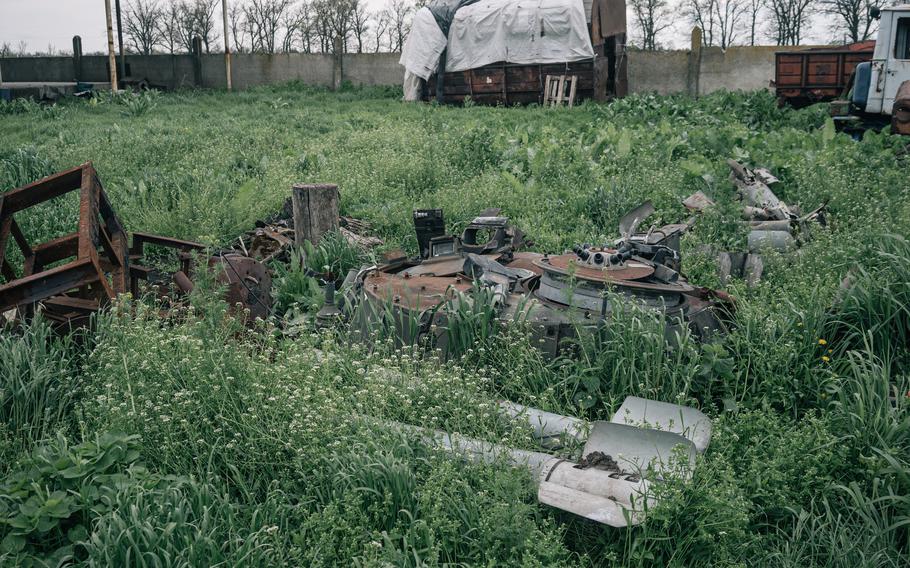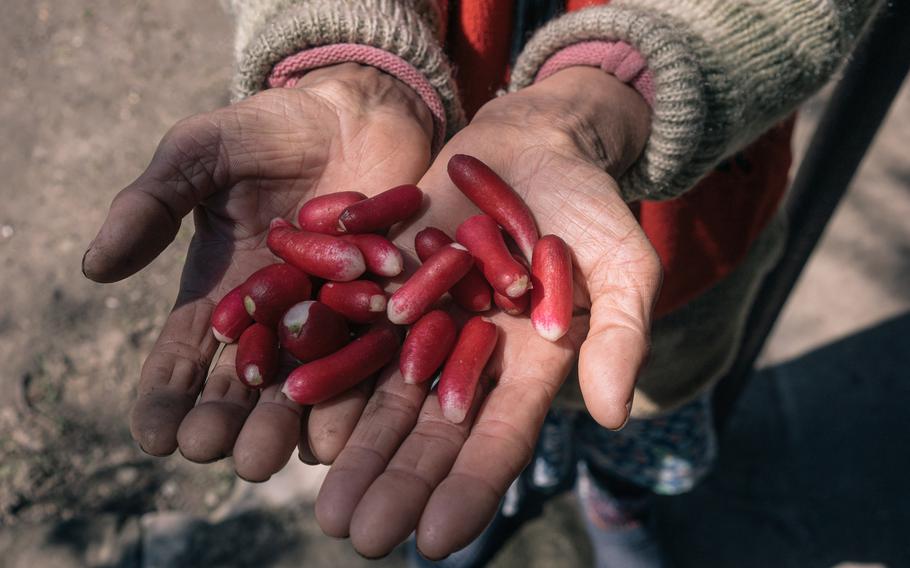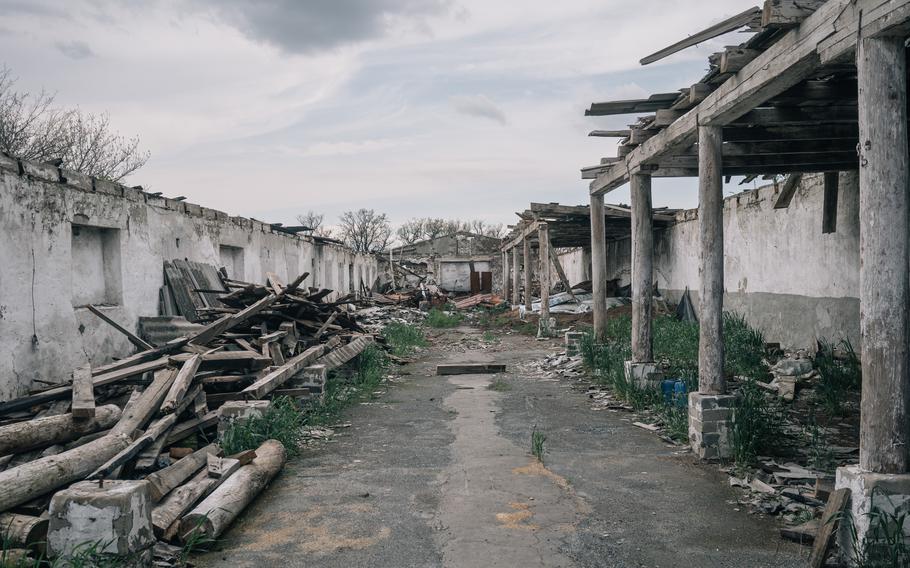Europe
In fields seeded with mines, Ukraine’s farmers face deadly planting season
Special to The Washington Post May 28, 2023

The remains of rockets and Russian military vehicles in a field on Andriy Puryk’s farm in the Kherson region of Ukraine. (Alice Martins/for The Washington Post)
VYSOKOPILLYA, Ukraine — The war in Ukraine is forcing farmers across the country to make a life-or-death choice: Is planting seeds to put food on the table worth the risk of inadvertently setting off unexploded ordnance?
Russia’s invasion, now in its 15th month, has made Ukraine the world’s most mined country, officials here say. Fields on which farmers once depended are now potential death traps.
In the southern coastal Kherson region, considered some of the country’s most fertile land, farmers sweep their fields for live munitions one careful step at a time. Driving a tractor or plow across is too dangerous.
Andriy Puryk, 60, walked gingerly up and down his vast territory for months, collecting artillery shells with his bare hands. He determined by eye which had already exploded and which had not.
“We checked the fields from December to April day after day,” Puryk said. “We carefully looked ahead, 10 meters away, and assessed what we saw in front of us.”
Once all visible traces of the war were removed from the field, Puryk was determined to cultivate his crop as he does every year. He attached armored plates to his tractor — extra protection, he said, in case he had missed any ordnance.
“Only I, as the eldest, sat behind the wheel,” he said. “Children still have to live.”
Puryk survived months of a difficult occupation — the front line ran through the middle of his farm; clashing forces turned his fields and warehouses into battlegrounds. But even after Ukraine’s army expelled the Russian troops and the bombardment eased, it was difficult to get back to work.
Other farmers are using tractors that can be operated remotely to minimize the danger. Some, having tried to seed fields on their own, have been killed or maimed by mines. Russia’s invasion has caused more than $6.6 billion in damage to Ukraine’s agriculture sector, according to official estimates by Ukraine’s Ministry of Agrarian Policy and Food and the Kyiv School of Economics.

Lidiya Lyashenko, 78, holds a handful of radishes she says were planted with seeds donated by benefactors. (Alice Martins/for The Washington Post)
“When we liberate these territories, we will not be able to use them for agriculture for the next three or four or five months because we’ll need to demine it,” said Defense Minister Oleksii Reznikov. He said Ukraine will be “cleaning” its territory for many years after the war ends: “It’s our future.”
To keep people away from mined fields but still get them the essential foods they need, the Seeds for Ukraine initiative has started building greenhouses on plots unsuitable for farming in recently deoccupied villages across Ukraine. Families receive seeds donated from abroad to plant fresh fruits and vegetables — an alternative to volunteer humanitarian aid deliveries that can be unreliable.
“It’s easier and more sustainable to provide tools for growing [your] own food,” said Volodymyr Kadygrob, who founded the initiative. “It also gives work and makes people a little bit happier. Gardening is the opposite of war and destruction.”
Natalia Bushynska, 64, lives in the Kherson region. She said Russians stole all of her seeds.
“That’s why there was nothing to sow this year,” Bushynska said. Then she received a Seeds for Ukraine package that included cabbage, carrots, watermelon, tomatoes and corn.
In the northeastern Kharkiv region, demining crews work daily from 6 a.m. to 6 p.m. — sometimes later — and don’t see an end to the work.
“Demining this entire area, all the roads and fields, will take at least 70 years,” said Oleksandr Marchenko, who became a sapper after the Russian invasion. “And the longer this war will last, the more added years will be spent on the demining effort.”
Marchenko and his three crewmates were called to handle an unexploded cluster munition and a so-called petal mine. They have a truck to transport the ordnance that they cannot dismantle on-site. The cab is armored to protect the driver in the event of a munition exploding.

Andriy Puryk’s destroyed farm. (Alice Martins/for The Washington Post)
“You’re constantly uncomfortable,” Marchenko said. “If you’re not scared, you have no business being in this profession.”
Residents ask the sappers to check their gardens and backyards. The requests pile up during the day to be fulfilled in the evening, after the crew completes more pressing work.
Vitalii Fesenko, 36, was running a large family agribusiness on more than 7,000 acres when it became a battlefield. Russian and Ukrainian forces alike planted antitank and antipersonnel mines throughout the property. While Fesenko waits for the sappers to come, his staff has shrunk from 30 workers to three.
There is a pigsty on the neighboring field. The owner left the doors of the pen open at the start of the war to increase the pigs’ chances of survival. When Fesenko and his neighbor returned to their farms in October, after the liberation of the Kharkiv region, it appeared the effort had been in vain.
Fesenko pointed to a hole where one of the animals had triggered a mine.
“Those pigs are now helping us demine the fields,” he said.
Galouchka reported from Velyka Komyshuvakha, Ukraine. Isabelle Khurshudyan in Kyiv, Ukraine, contributed to this report.